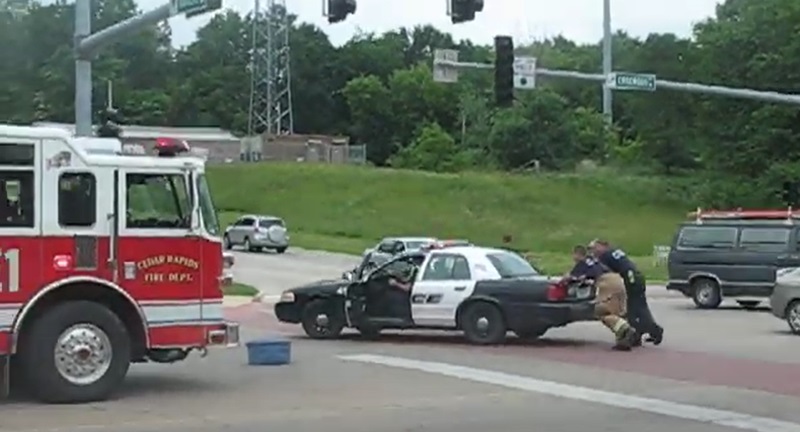
We know that hundreds of police officers are killed or injured in the line of duty every year. We know that stress and trauma lead to the loss of careers, years of life, and the disruption of police families. Some of these challenges can be mitigated and some are just part of the job, but there is no excuse for officers facing danger from being denied essential workplace protections.
Officers in rural areas are especially vulnerable to a lack of resources and mismanagement of workplace safety principles. Kathleen Dias is an expert and writer on rural law enforcement issues and opened a discussion on this issue that garnered a flood of sad stories from officers working in small agencies. Dias points out that rural officers often do not have representation from unions or other employee advocate groups. She also notes that while federal and state agencies have workplace safety mandates, “OSHA specifically exempts local and state law enforcement agencies, so unless a state version applies, every single officer is dependent on the goodwill of agency leadership, and local budgets for safety equipment, training and staffing.”
Few protections are afforded officers in small agencies for being a “whistle blower’, or even making a complaint, formal or informal, about unsafe conditions. They risk the ire of a Chief or Sheriff who doesn’t want to hear it and who has the legal right to fire, suspect, block promotion, or just hold a grudge against a complaining officer.
My personal two cents is from an experience in my first agency which, overwhelmingly, I liked and enjoyed but when I was concerned about the radio coming on and off whenever I hit a bump, it just wasn’t the right time of year for the budget to make a repair or replacement. When my concern was stalled, I also noted that in the early days of ballistic vests, we were issued only one per vehicle that was to be kept in a bag in the trunk of the patrol vehicle. I organized a local association of officers to bring some group pressure and was able to convince the City Manager to authorize the funds for new radios and individually assigned and fitted ballistic vests.
On another occasion, I was riding with a salty veteran deputy driving a patrol car with a cracked windshield and unsteady suspension. He noted wryly that if he saw another car in the same condition he would cite them for operating an unsafe vehicle. There were no pursuits that night in that car!
Feedback from Dias’ writings that unmask dangerous conditions for small agency officers included stories of unsafe patrol vehicles to 95 hour work weeks (federal labor laws exempt agencies with fewer than five officers), bald tires, and bad brakes. Small agencies often acquire used patrol cars from larger agencies, so some of their “new” vehicles come with 100,000 miles of hard use. Many of those come from agencies with excellent maintenance and professional fleet management but with a lot of stop-and-go, high speeds, hours of idling, and generally rugged use.
The myth of Mayberry often persists for rural law enforcement although the incidents of shootings, drug use, assaults, and murders of police officers are at least as prevalent or more. I remember doing a ride along with a large agency when a stolen car pursuit was broadcast. My host unit was not allowed to engage because of my civilian presence (even though I was currently a police officer elsewhere). Still, we did converge on the scene after the suspects were in custody. There was already a crew collecting evidence from the victim’s vehicle, enough officers to have established an inner and outer perimeter, two K-9 units (responsible for apprehending the fleeing suspects), and a helicopter. I had chosen to work in small agencies, but I couldn’t help but reflect on the fact that in one agency when I needed assistance on a midnight shift, I depended on the on call deputy who had to be awaked, drive to the Sheriff’s Office to get a car, then drive 20 minutes to reach me.
Some risks officers are willing to take because of their desire to serve and protect, but preventable tragedy is just around the corner when their own agency fails to serve and protect them.
Make a difference. Support the NPA.






